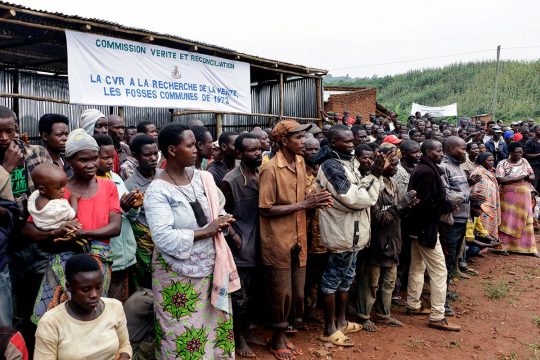“The announcement that the International Criminal Court prosecutor is opening a preliminary examination of the situation in Burundi should be a wake-up call that the era of impunity for grave human rights violations in Burundi is over. Allegations about crimes there and those who commit or order them will now be under the Court’s scrutiny.
The Burundian authorities have the legal obligation to stop the abuses that have been escalating in Burundi since 2015 and to hold those responsible to account, but have failed to do so. The ICC was created as a court of last resort, to ensure that justice is done for grave international crimes. Burundi should fully cooperate with the Court’s preliminary examination.”
Background
Since April 2015, Human Rights Watch has documented a sharply deteriorating human rights situation in Burundi, with hundreds of killings – many by the Burundian security forces, others by armed opposition groups --, numerous cases of torture, large-scale arbitrary arrests and detentions, and enforced disappearances. The Burundian justice system lacks independence, is highly politicised, and has failed to take effective action to bring to justice those responsible for these abuses.
For further information about Human Rights Watch’s findings in Burundi, please visit: https://www.hrw.org/africa/burundi
The ICC has jurisdiction over grave international crimes committed in Burundi, which is a state party since ratifying the Court’s treaty in September 21, 2004. During a preliminary examination, the Office of the Prosecutor of the ICC determines whether criteria warranting a formal investigation are met. This includes verifying whether crimes under the jurisdiction of the court have been committed, as well as evaluating their gravity, and whether any national judicial proceedings have taken place. The Office of the Prosecutor is currently conducting preliminary examinations in seven other countries: Afghanistan, Colombia, Nigeria, Guinea, Iraq, Ukraine and Palestine.





